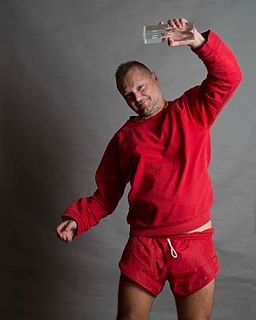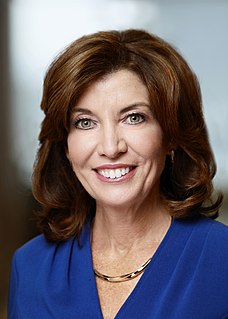A Quote by Anne Robinson
I think that in a family some are workers some are not. I certainly saw my mother work very hard and be in charge and never show any kind of fear about business deals. Her golden rule was you should never be embarrassed talking about money and asking for what you deserved. I take the same view.
Related Quotes
Money is very difficult to think about. So, we think about money as the opportunity cost of money. So, we at some point went to a Toyota dealership and we asked people, what will you not be able to do in the future if you bought this Toyota? Now, you would expect people to have an answer. But people were kind of shocked by the question. They never thought about it before. So, the most we got was people said, "Well, if I can't buy this Toyota, if I buy this Toyota, I can't buy a Honda." What is this thing? What is this value of price? Very hard to think about it.
I've never thought about any kind of prejudice about women in country music because I never felt like it affected me. I was fortunate enough to come about in a time when I didn't feel that kind of energy at all, and it was always my theory that if you want to play in the same ballgame as the boys, you've got to work as hard as them.
The relationship I have with my mother now, and photographing her in front of the grave, it opens up discussions, and dealings with the conversations with my mother about, when I was little, how we lived and about suicide and talking about it, so it's something positive, it brought us more together, because people might never discuss that. Some families never go near certain subjects because it's too hurtful or too close or too dangerous. But within doing these photographs, I also wanted to open up a conversation with her about certain things about life.
My mother saw her mother... her father walked out when they were very young and it was a lot of, I'd say more verbal abuse than physical, but it was the same. And my mother, back in the 70s, became an advocate for victims of domestic violence way before anybody in the Legislature was talking about it.
Showing weakness will encourage your opponents. It inspires them. It encourages them to hit harder. To come faster. But when you don't show any fear, or when you don't show any hurt, you have the opportunity to discourage your opponent. You discourage your enemies. The bottom line is, if you think properly, you don't even have to think about all of that. All you have to think about is that guy across from me is human, and so am I. And he'll never out-work me. He'll never out-think me. And if you can't out-work me, and you can't out-think me, you'll never beat me.
If I hear a film clip, or I happen to see some image from a film - you go to a film festival, and they show some clip of the movies you've been in, most of the time I sit there and go, "Oh God, I should have... should have... that was terrible." But I think that's a natural part of this work, because really, your work is never over. Of course I can leave it alone and walk off the set and never think about it again when it's done. But your work is really ongoing all the time.
I never had a doubt about wanting to be an actress, but certainly when there were periods of unemployment, I would think, "Oh, I'm never going to work again." The only thing I don't like about it is the business part of it - the negotiating and all this stuff that you don't learn in school. I'm not good with business.
I respect people who come forward and speak, but I'm not asking most of the sex workers I interview now about their work. I'm asking them about their lives in general or their political organizing. I take pains source things pointing back to intellectual work that sex workers have produced, because that's really absent.
I was never that kid that wanted to be in politics. What happened was, I graduated with a degree in accounting. I came back home to the family business. I saw how hard it was to make a dollar, and how easy it was for the government to take it. And my mom said, "Quit complaining about it. Do something about it."
Soaps are great. You learn to work very fast - some say superficially, but that's not really true. You do some very serious character work. I've never had any feelings about a stigma attached to it, and nowadays there seems to be less snobbery about what you do. More and more big names are doing TV and commercials and voiceovers.
I mean, her father was an alcoholic, and her mother was the suffering wife of a man who she could never predict what he would do, where he would be, who he would be. And it's sort of interesting because Eleanor Roosevelt never writes about her mother's agony. She only writes about her father's agony. But her whole life is dedicated to making it better for people in the kind of need and pain and anguish that her mother was in.
One of the things I know about my family, my generation, and my ethic background is that we put in work and I'm not just talking about just to eat. You have to think about the civil rights movement, they were putting in work; marching, walking miles and miles, sacrificing, getting on the bus, feeding one another, they had schools, voter registration, they were working! They were hard workers so my advice is to work.



































